Incredible Adventures of Europeans in India
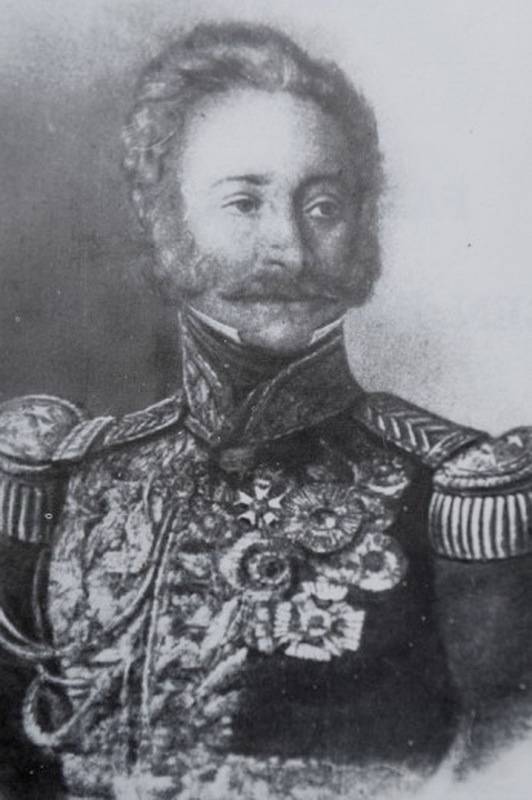
Military masters
1815 year for many French military (to the delight of their opponents) was tragic. And for Joachim Murat, personal tragedy began even earlier - in 1814. Napoleon abdicated and he, in fact, had only one way out - to return troops to the kingdom of Naples. What he actually did. At that time, Murat was cornered. His representatives were not allowed to peace talks that took place in Vienna. And the leaders of the once allied countries changed their attitude towards him and were not eager to recognize the legitimacy of his power. Murat had a serious adversary in the face of former King Ferdinand, behind whom was Sicily. In addition, in the northern part of Italy there was a powerful Austrian army, whose number was approaching the mark of one hundred and fifty thousand soldiers.
The commanders only waited to begin a military operation to dislodge the troubled and disturbed Murat. It seemed that the days of the King of Naples are numbered. And in order to rectify the situation, a great and real miracle was required. And it must be said happened.
On March 1, 1815, Napoleon rose from the ashes. He did not just leave the Elbe, but returned to France in order to once again concentrate power in his hands. When Murat learned about this, he decided that this chance should not be missed. And therefore, on the eighteenth of March, declared war on Austria. He perfectly understood that his undertaking is very adventurous and there are not so many chances for success as we would like, but he took the risk. The next step of the Neapolitan king was an appeal to all Italians. He urged to unite in a single nation and begin the unification of a feudally fragmented country. In his proclamation of March 30, Joachim stated that Italy needed to be freed from foreign (understandably what the Austrians meant) troops: “80 thousands of soldiers from Naples, led by their king [Murat], vowed not to stop until they liberated Italy. We call on Italians from every province to help implement this great design. ”
In fact, Joachim was cunning. He had exactly two times fewer soldiers than he claimed. But, as they say, the die was cast, and the Rubicon was crossed. And at first he was lucky. Murat was able to occupy Rome, Bologna, as well as several other not so large (but psychologically important) cities. In the end, Joachim and his army reached the river Po. Here he had to come together in a decisive battle with the Austrians. The main battle took place on the second of May 1815, under Tolentino. Murat was opposed by the Austrian corps of Bianchi and Nugent, who were very determined and were not afraid of the Neapolitan king. At first, success came with Murat. His troops managed to press the Austrians, but then the battle scenario changed. This is due to Bianca’s counterattack, reinforced by reinforcements. Joachim, who commanded the battalions, in his sector managed not only to stop the advance of the enemy, but also threw him to the starting point. However, it was, if I may say so, a local success, since the Austrians were stronger in other areas. Murat, of course, was furious. He fell into a position from which there was only one way out - a retreat. But while having twenty-seven thousand of his own soldiers available, Joachim did not dare to butt with the enemy’s forty-thousand-strong army. Besides, came news that Nurgent with his twelve thousand army managed to break through to the rear. The uprising in southern Italy became the cherry on Murat’s failure cake. The rebels were on the side of the former King of Naples, Ferdinand. Things went wrong. And so Murat had to urgently leave his army (General Charaskoza became its commander-in-chief) and arrive at rebellious Naples. No, he was not going to somehow fix the situation. Joachim had only one task - to save his family from the rebels, who decided to put an end to Murat's rule.
The interesting thing is that the Joachim family was evacuated to Austria with the help of the British. Murat himself went to France. True, for this he had to hide his identity and change into a regular sailor. The fleeting Neapolitan king wanted to meet with Napoleon to discuss with him a plan for further (ideally - joint) actions. But Bonaparte had enough problems without an uninvited guest. Therefore, he refused his former marshal in a meeting and ordered to wait for further orders while in Toulon. Joachin did not dare to contradict, therefore he obeyed. And, accordingly, the legendary Battle of Waterloo was held without his participation. As you know, in that epochal battle, Napoleon was defeated, unable to cope with the armies of the opponents. It became clear that France was undergoing major changes - the time of the so-called second restoration had come. Murat, like a hunted animal, at the end of August, managed to leave France and hide in Corsica. But he understood that this would not continue for a long time, since his enemies, the royalists, were literally following in his wake. Here, on the island, Joachim managed to gather a small detachment of his supporters (about two hundred and fifty people). Then he began negotiations with the Austrians. It was in them, in his enemies, the former king saw the only chance for salvation. And ... the enemies showed nobility. True, Murat could receive new documents only after fulfilling a number of rather stringent requirements. First, he had to renounce the title of king, claims to the Neapolitan throne and fully comply with the Austrian laws. And Joachim agreed. So he got a new passport, a count title and an “apartment” in Bohemia. It would seem, leave and live a quiet life. But Murat would have betrayed himself if he accepted this boring scenario. He decided that he could change the course of events, so he decided to return to Naples and raise a rebellion. He did not doubt that the townspeople would meet him with enthusiasm and joy. Of course, those close to them tried to dissuade the former king from a deadly adventure. But he did not listen to anyone. And at the end of September 1815, six ships under the banner of Murat left Corsica and headed for Naples.
But once again a combination of circumstances played against Joachim. In this regard, he turned out to be an absolutely unlucky person. On the way, Murat’s ships landed in a storm. Already modest flotilla turned out to be scattered. Four ships were forced to turn back. But Joachim did not intend to give up and decided to go all the way. True, by some miracle, his comrades-in-arms nevertheless managed to refuse him to fulfill the original plan and not to land in Naples. And the remaining two ships headed for Trieste, in which the Austrians were to replenish supplies. Murat, who was very fond of pomp and theatricality, went ashore in full dress to produce the maximum effect on the townspeople. Still, they should have understood that the true king returned not only of Naples, but of all Italy. But ... it did not produce the desired effect. And Murat moved on.
He landed near the town of Pizzo, in Calabria, on the eighth of October. Joachim hoped that he would be met as a “czar-father”, but even here he was disappointed. The locals (including the soldiers) met Murat rather indifferently, without showing either joy or hostility. Joachim understood that he needed to move on. Therefore, I went to the regional center of Monte Leone. But the local soldiers were not so loyal. They opened fire, forced the former king and his "retinue" to return to the landing site. And ... something happened that Murat could not imagine - his ship - the only option for salvation - was gone. The trap slammed shut. The gendarmes arrested Joachim and put him in jail. True, they behaved with him respectfully, because no one knew what decision the government of Naples would take on the account of the former king.
In the meantime, Murat was interrogated. On them, he behaved calmly and confidently. The former monarch tried to prove to the gendarmes that he had to disembark because of the storm. He had no thoughts of raising a rebellion. Perhaps he would have been believed, but ... Murat himself made a mistake, which turned out to be fatal. During the flight from the gendarmes, he forgot to destroy the proclamation, which just contained calls for insurrection. When the “piece of paper” became known in Naples, the fate of Murat was sealed. And on October 13, 1815, a military court sentenced the former monarch to death, and with the immediate enforcement of the sentence. True, Joachim was still allowed to write a farewell letter. Murat wrote that the only thing he regretted was that he was dying away from his wife and children. Then he stood in front of the soldiers and took out a small medallion. Kissing the image of his wife, Joachim said: "Save your face, aim in your heart!" And immediately followed by a volley of twelve rifles.
"Former" in the East
After the death of Murat among the military specialists who were out of work, there was also a Neapolitan Paolo Crescenzo Martino Avitabile. Since he supported the disgraced monarch, he found no place in Naples, as, indeed, in France. And in order not to die of hunger, Avitabile decided to look for happiness in the East. Namely, in India. In that distant and mysterious country where Napoleon and the Russian emperor Pavel I were planning to send Massena’s grenadiers and Platov’s Cossacks at the very beginning of the nineteenth century. Then this ambitious plan against Britain could not be implemented because Paul was killed, and the new emperor Alexander I broke off the agreement with the emperor of France. And now, after years, the French military set off for India.
I must say that since the eighteenth century, most Europeans, India was personified with fabulous wealth. There were legends that absolutely anyone with a head on his shoulders is capable of getting rich there. These myths are actively "fed up" by the fighters who happened to be in the East. By their efforts, India has become synonymous with wealth and miracles. Naturally, the rulers of the leading powers of the Old World dreamed of attaching the “golden antelope”, but this was not so easy. And it's not just remoteness, the British Empire jealously guarded its breadbasket.
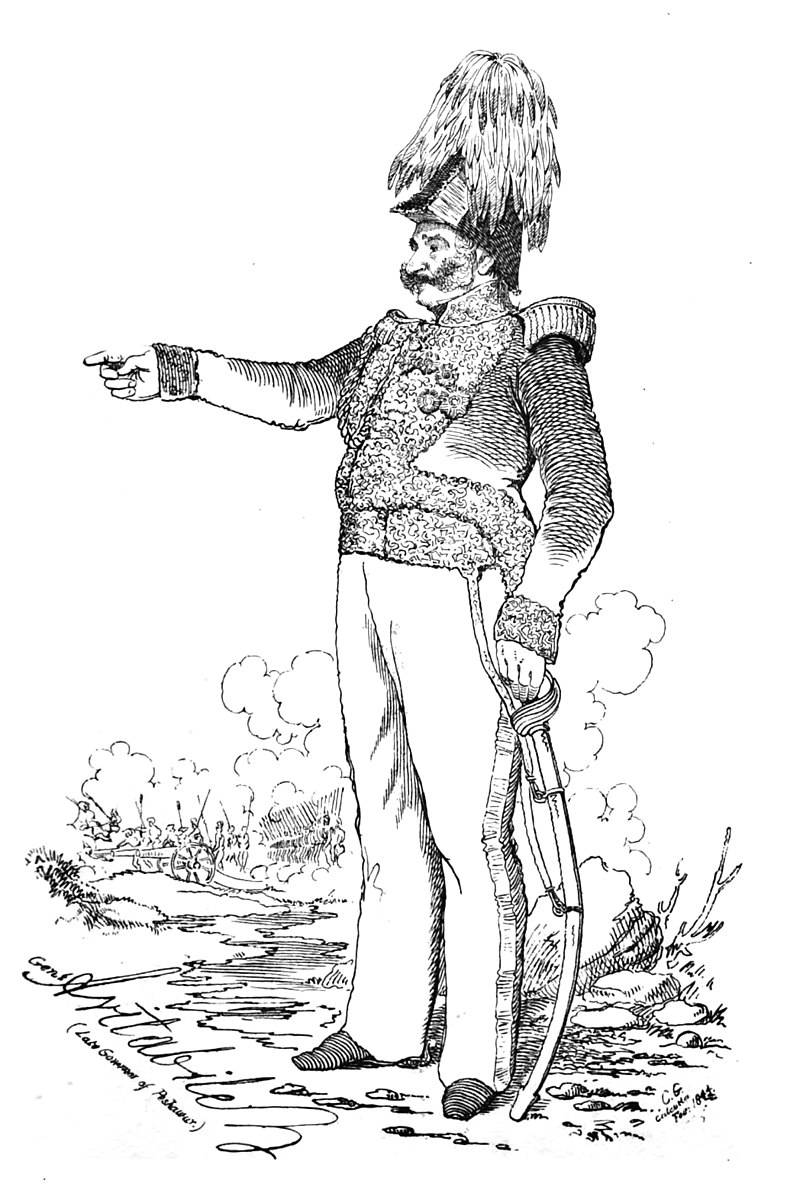
As for the Indian rulers themselves, they understood that they were very far behind the western "partners." This was particularly illustrated by the battles for the Austrian Succession and the Seven Years War. The Indians saw that it was necessary to do something with the problem of technical backwardness. Yes, they could have assembled armies of enormous size under their banners, but their fighting efficiency left much to be desired. The Indians came to the cruel realization that the times when the number of soldiers predetermined the outcome of the battle was gone. Now it was not the quantity that was required, but the quality. But, of course, they could not bring military craft to a new, modern level only with their own forces. Therefore, they decided that the experience and military secrets should be drawn directly from the "primary sources", that is, from foreign experts. It is clear that just like that, European professionals would not have gone to them, they needed a solid “carrot”. The rulers realized that now their fabulous wealth could bring real benefits. For money and valuables, European military specialists, engineers and technicians who became useless in their homeland were ready not only to bring the medieval Indian armies to a new level, but also to become almost the main opponents of their own, let's say, employers. Of course, when the news that the Indians are ready to pay solid money for the “master classes” spread throughout Europe, not only real professionals, but also whole armies of adventurers and fraudsters, with well-hung tongues and “pumped” acting skills, reached the East. They just found work without any problems, only the services they provided were of very dubious quality. In this case, the investment did not justify itself.
Gradually, in many states located on the territory of India, Europeans became an indecent lot. This was especially true of those countries where the treasury was full of wealth, and their rulers considered themselves progressive and educated. In their armies, any leadership position (even the most modest) was necessarily held by a native of the Old World. Especially a lot of the French. As you know, they were defeated in the struggle for India and were left without work. Of course, it was possible to return to France, but this idea did not even smell like that. Whether it is India, here the Europeans felt needed and in demand. At the very least, the British East Indies company managed to cope with that first wave of mercenaries, just as with numerous fragmented states. Accordingly, it was the Company that became the main force of the entire region. In this confrontation, the troops of the states of Marathas and Mysore could not oppose the British, despite the fact that they were trained by the French. The questionable qualification of many cadres (there were cases when European commanders corny deserted, when they learned that they needed to take part in battles), and a time limit also affected. An important role was played by British agents who tried in every way to discredit the French, whom they, of course, disliked. In general, for about a couple of decades, India has become inaccessible to European (especially French) military specialists. They had enough work and at home. But the situation has changed dramatically after the Napoleonic Wars. Now they needed a new "labor market". And then the adventurers remembered India. Especially keen to see them under his banner Maharaja Ranjit Singh, the leader of the gathering power of the Sikh Empire. He clearly understood that it was time for a large-scale and global military reform, which he could not do without Europeans. Thus, in the early twenties of the nineteenth century, numerous mercenaries poured into India for the second time. Their number, of course, was not as large as during the “first wave”, but still. The main thing is that in the East really qualified specialists turned out to be. For example, Jean-Francois Allar, Alexander Gardiner, Claude-Auguste Court, Batiste Ventura and Paolo Avitabile.
Before being in the East, Avitabil went a long way. It is known that he was born on October 25, 1791, in a village called Agerola, which was located between Salerno and Naples. He came from an ordinary peasant family and his future was very, very promising. But the situation in Europe at the beginning of the nineteenth century was such that even a middle-income person had the opportunity to wipe at something great. True, this required a good show themselves in military service. And Avitabile took advantage of his chance. In 1807, the guy was in the militia of the Neapolitan kingdom, which was formed thanks to the desire of Napoleon. A few years later, Paolo was already in the regular army with artillery crews. His military career developed, though not quickly, but confidently. And in 1815, Avitabil was promoted to lieutenant and commanded the fifteenth battery. Paolo was a supporter of Murat, so he had to take part in several military campaigns of the King of Naples. But Joachim lost and Naples was taken by his previous owner - Ferdinand I of Sicily. Despite the fact that Avitabile did not deny Murat, he managed to maintain his rank even under the new government. Moreover, Paolo took an active part in the siege of Gaeta in the summer of the same long-suffering 1815 year. In that battle, he managed to show his best. And the Austrian General Delaware recommended him for a new rank, as well as corresponding awards. But ... nothing happened. "Tops", remembering his past, decided to transfer him to a regiment of light infantry, leaving him in the same rank. Avitabile was greatly outraged. But he had only one way out - to resign. And he did it. According to the memoirs of contemporaries, Paolo could not forgive his commanders for such a dismissive attitude. In 1816, Avitabile’s military career came to an end.
At first, Paolo was going to go to America. He decided that it was there that his military specialization could be useful. Avitabile even boarded a ship and set off, but that journey ended near Marseilles. The vessel went to the bottom and the military only managed to escape by a miracle. He was not going to go home. And since he was unlucky with the western direction, Paolo decided to seek fortune in the East. And soon the gunner was in Constantinople. Here he was lucky. He quickly managed to meet with the agent of the Shah Fadh Ali Shah Qajar. The representative of the eastern state told the Neapolitan that his ruler needed a qualified European military. Paolo did not refuse. And in 1820, he officially entered the service of the Persian Shah.
In foreign country Avitabil spent a long six years. During this time he managed to rise to the rank of colonel of the Persian army, and also received the rank of Khan. Shah praised the activities of the European, giving him several high awards. True, if in the issue of orders and titles Fath-Ali showed generosity, he decided to “ponder” with finances, therefore Avitabil received less than he expected. He understood that it was too dangerous to argue with the Shah and something from him was necessary, so he decided to remain silent. And soon he left Persia.
According to one version, Paolo returned to Naples and began to look for a new job. It was then that he was contacted by old friends of the fighters - Jean-Francois Allard and Jean-Baptiste Ventura. At the time, this couple held military adviser positions with Ranjit Singh, Maharaja of Punjab. And they called him over.
According to another version, Paolo did not return home. While still in the service of the Shah of Persia, he learned that Jean-Baptiste Ventura was working for the benefit of Punjab. And I decided to go to him. Actually, entering the service of Ranjit Singh was not as simple as it seemed. And the most difficult was the road to Punjab. But the adventurous vein took over and Paolo, after saying good-bye to the Persians, set off.
Eastern fairy tale
Only in January, 1827, Paolo, having passed Kabul and Peshawar, got to Lahore, the capital of Punjab. Since Avitabile knew his price well, he decided to knock out a contract from Ranjit Singh under the most favorable conditions for himself. And so the negotiations between the ruler of Punjab and the European dragged on for several months. Of course, Paolo was taking a lot of risks, he could well have been refused, but he took the risk and won. Ranjit Singh understood that he was a qualified specialist and did not want to see him in the ranks of a foreign army, so he made numerous concessions. We must pay tribute to Avitabil, he performed his duties brilliantly as a military instructor and commander of the army. He first formed the infantry brigade, taking the European model as a model. And then he began to "pump" the soldiers. At first, they literally fell from their feet from numerous exercises and parades. But gradually the situation began to improve. The work that Avitabile carried out for three years gave the desired results. Ranjit Singh was impressed and impressed, and so much that he made Paolo the governor of the city of Vazirabad. A European could hardly even dream of such a career growth. But success and power did not turn his head. He continued to work for the benefit of Punjab. And in 1837, a Neapolitan became governor of Peshawar. After just a year, Avitabil had to actually prove his military competence - a Neapolitan took part in the British invasion of Afghanistan, which occurred in 1838 year.
About this event is to say a few words. The British became "cramped" in India, and they decided to establish their power also in Afghanistan. At that time there was a fierce struggle for the throne. Of the several candidates, the Europeans sided with Shuj Shah Durrani and helped him take the throne. But this intervention was not limited. The British decided to stay in Afghanistan. Such a disposition did not suit the local population. And being a militant people, the Pashtuns continually revolted. It got to the point that they occupied all the mountain passes that connected Kabul and Jalalabad. And thus blocked the message of the British in Afghanistan with the British in India. Surprisingly, the Europeans rather sluggishly reacted to such a manifestation of aggression. And then the Pashtuns, sensing the weakness of the enemy, raided the British mission in Kabul. They killed the soldiers and looted the treasury. There was no response again. After that, Pashtuns began to openly cut the Europeans. The British garrison, located in Kabul, was headed by Major General William Elphinstone. He was a man of weak character and cowardly. And instead of defeating the rebels, he agreed to sit down with them at the negotiating table. As a result, he signed a very strange contract. First, the Pashtuns received all the property of the garrison. Secondly, William Elphinstone agreed to leave both the wounded and officers as hostages in the city. He managed to “bargain” for his own freedom. And on January 6, 1842, the British garrison (more than sixteen thousand people, of which only slightly more than four thousand soldiers) left Kabul, heading for Jalalabad. But only one person reached it. The rest were either killed by the rebels, or died of starvation and severe weather.
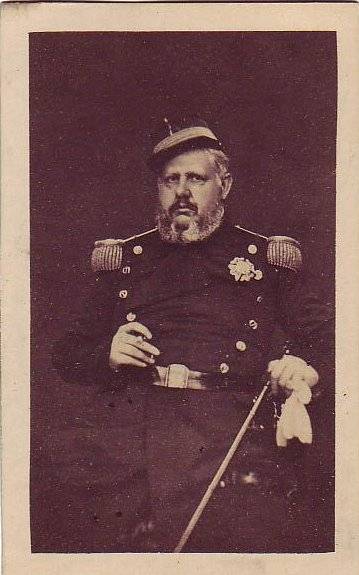
Let's return to Avitabil. The Peshawar he inherited was a full-fledged wasp nest. Here, the overwhelming majority of local residents were Muslims who aggressively treated all foreigners. At first, the Pashtuns hated the henchmen appointed by the Sikh regime, and then "warmly" met Paolo. But the Neapolitan had already seen enough of himself in his life, therefore he did not expect anything else from them. Ignoring the natives, he began to implement his many plans. The first thing Avitabil ordered to deploy across the city large-scale construction. In the shortest possible time, civilian and military buildings began to appear in Peshawar. In this case, the city itself has undergone a serious redevelopment. At the same time, he began to organize the work of the courts, because before his arrival this was extremely bad in the provinces. Anyway, the Pashtuns did not perceive the laws, because the Sikhs' power over them was very formal and conditional. In addition, robbery and violence against strangers was commonplace. And Avitabil was required to urgently restore order here and split the hard nut in the face of militant Pashtuns.
Soon, a criminal case council appeared in Peshawar. It includes Muslims, Hindus and Sikhs. Thus, Avitabile tried to somehow unite the heterogeneous (both culturally and religiously) population of the province. This is what Paolo recalled about his hard work: “When I went to Peshawar, I sent forward a few wooden posts that my people had installed around the city. [Local] people scoffed at them and at the madness of the pale-skinned and even more - when my people stepped forward and put the coils of rope at the foot of the pillars (...) However, when my preparations were completed and one fine morning they found Peshawar’s fifty worst villains hanging around them [pillars], they changed their mind. And I arranged such exhibitions every day until I reached a shortage for brigands and murderers. Then I had to deal with liars and scammers. My method of working with them was to deprive them of languages. When the surgeon announced that he could return the gift of speech, I sent for him and cut out his tongue too. After that, peace came. ”
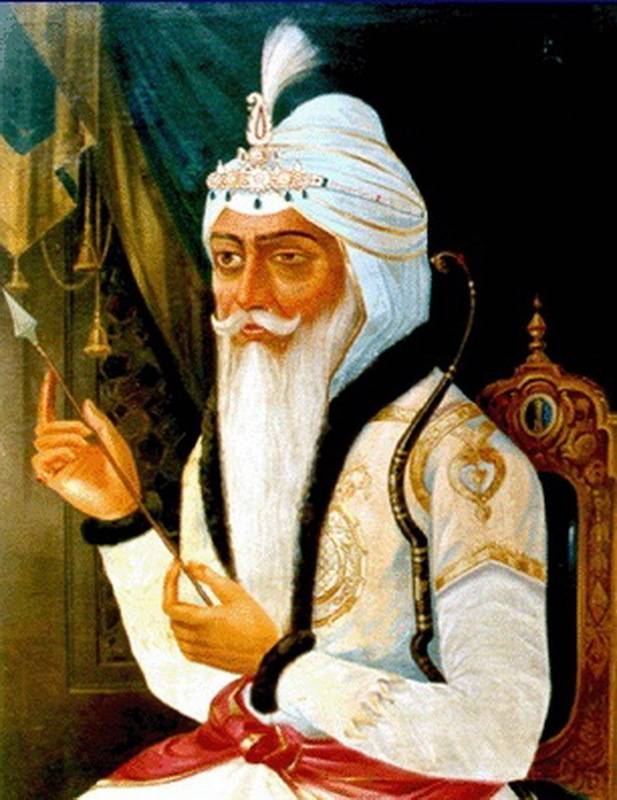
In a short time, the Neapolitan managed to replace the militant mountain Pashtun tribes. Everyone knew that their main “work” was the robbery, murder and abduction of all outsiders. Therefore, Avitabile signed a decree according to which they could come to the city for a short time and only for the purchase of goods necessary for life. Those highlanders who dared to break the law were arrested and sent to hang near the city wall. The method, of course, is hard, but the Neapolitan simply had no other options. Locals called it Abu-Tabel and considered it a symbol of exemplary order. British agent Alexander Burns, who was at that time in Peshawar, wrote: “Although at first the measures applied by him seemed too harsh to us, his actions were, I am sure, more merciful than I was if he were a big bummer.” But what William Barr recalled was another British spy: “The bloodthirsty display of Afghans on an excessive number of gallows, who considered it necessary to build in the suburbs of the city (...) But just as disgusting as these gallows to observe, realize that without them no security for life or for property. Indeed, the benefits of this terrifying austerity are already being felt. ”
Thanks to these, let's say, not entirely humane methods, Paolo succeeded in accomplishing this task. The number of gangs and murders in the region has significantly decreased, and human trafficking has almost disappeared.
Avitabil had to leave East in 1843 after the death of Ranjit Singh. The country plunged into the abyss of chaos and bloodshed due to the struggle for the throne that had been liberated. Paolo did not want to take part in this and returned to Naples. By that time, he had already saved an impressive amount, which allowed him to build a posh house, marry a woman who was much younger and lead a carefree life. Paolo died in 1850, an influential man. History his Neapolitan life proved that courage and perseverance can sometimes turn a dream into a reality.
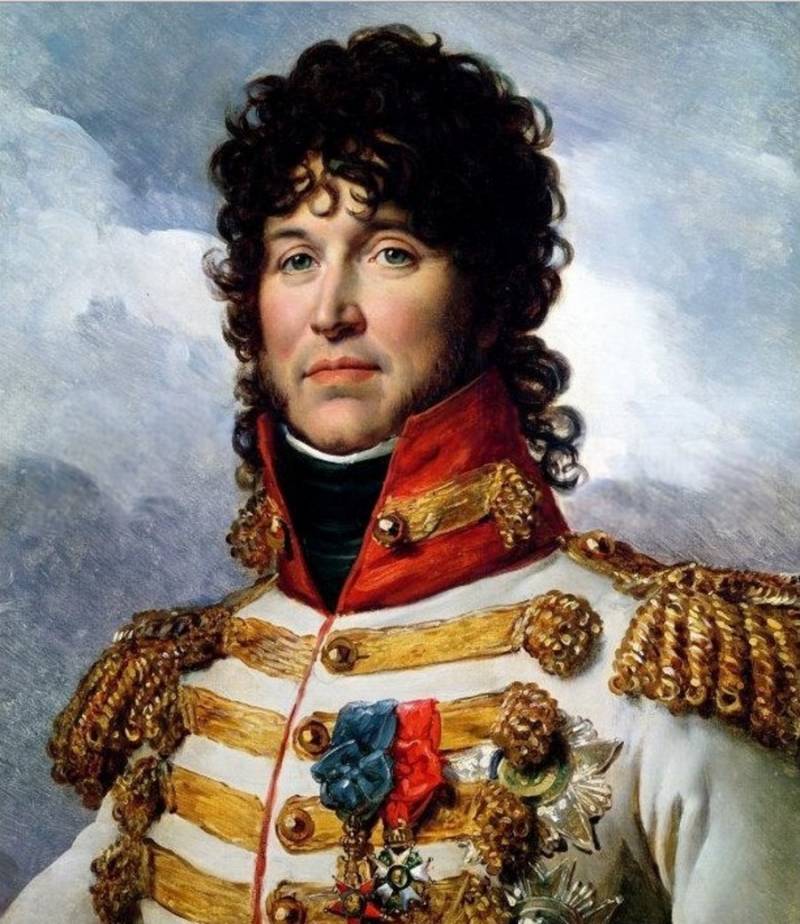
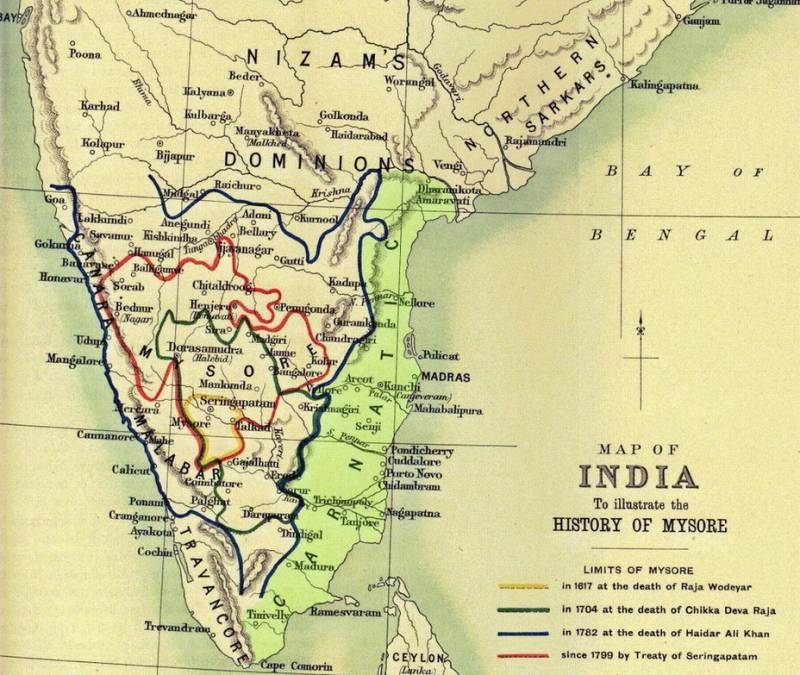
Information